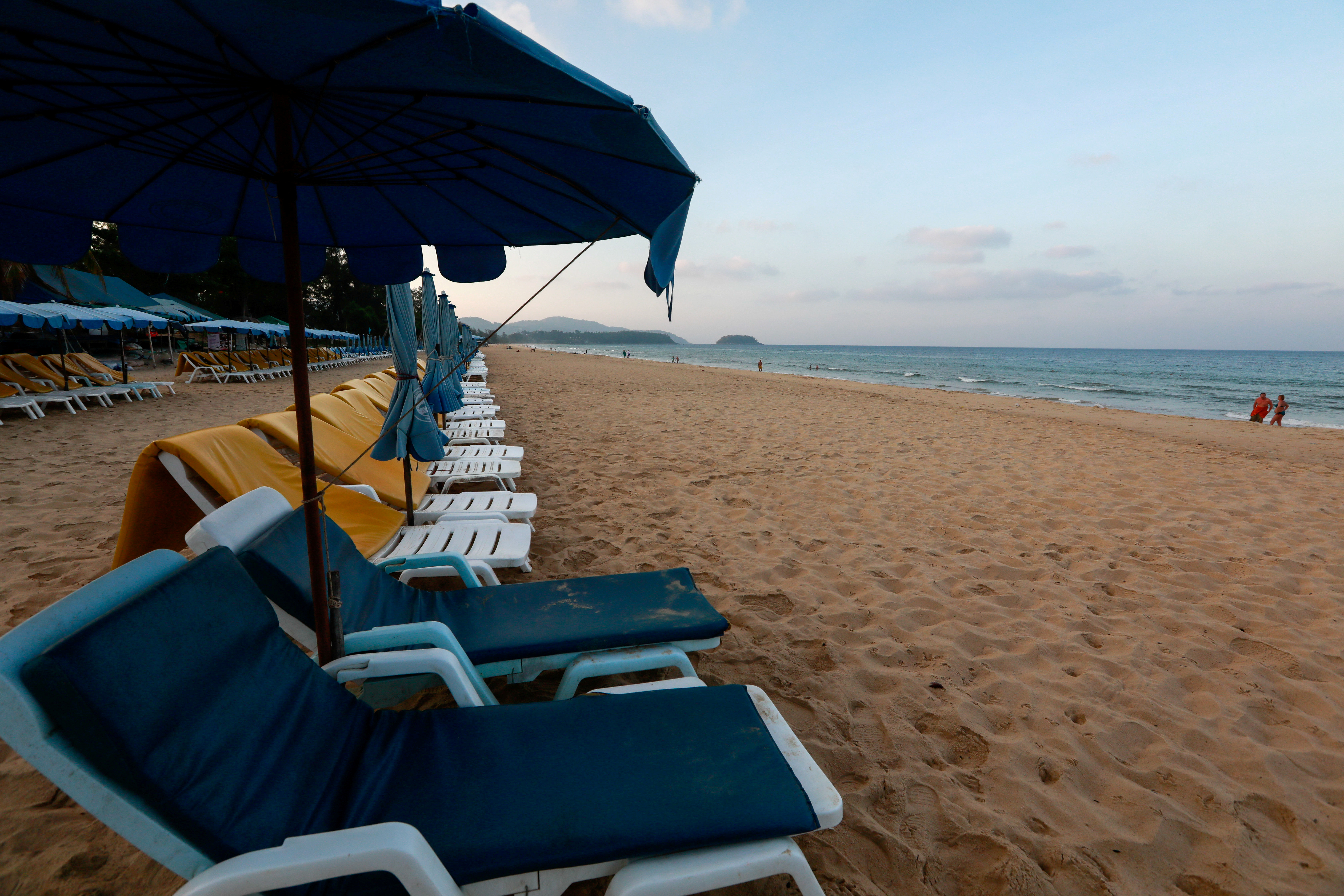(ATF) Thailand is banking on a vaccine-driven economic recovery for its hotel and tourism industry, which has been devastated by the coronavirus.
Tourism is big business in Thailand and normally accounts for 11-12% of GDP. The Covid-19 pandemic cost about a third of the 4.5 million Thais who work in their sector their jobs.
But tourism chiefs still hope to see millions of foreign tourists fly in later this year under special arrangements worked out with a handful of key provinces.
A mass vaccination programme has been worked out for Phuket and five other provinces – Krabi, Phang Na, Surat Thani (which includes Koh Samui), plus Pattaya and Chiang Mai.
Under the “sandbox” model, these mainly beachfront provinces will receive tourists who can stay for a shorter isolation period (of just one week) in a hotel and adjacent areas if they can prove they have been vaccinated against Covid-19. Tourists will be given contact tracing apps and allowed to leave their rooms for periods to swim, eat or shop within a restricted area.
And from July, tourists who have had the ‘jab’ will be allowed to visit Phuket (and perhaps Samui) without having to undergo the mandatory quarantine.
Over the next three months, officials in Phuket plan to get about 900,000 doses of the vaccine to achieve a level of ‘herd immunity’ among local people.
Recently, tourism officials in Krabi tested a return to outdoor tourist events.
The three-day Naga Music festival, held in late March, is one of the biggest gatherings in the South and showcases some of the country’s best talents.
A limit was announced — of 1,000 people on the beach each day — and those attending the event had to register on a special Covid app.
But far larger crowds gathered for the evening performances and mask wearing regulations were somewhat slack.
For local musicians like Choy Sitthisak Jantarangsri, who also designed the waterfront stage, it was a sign of hope for a return to normalcy.
“This year’s Naga Festival’s theme is a ‘new normal’ concert on the beach. It’s a case study to see if we can have future events while social distancing,” Choy explained after the performance.
Entertainers lost their jobs
The 50-year-old hotel performer is among thousands of entertainers who’ve been unemployed due to Covid closures.
“Many musicians have changed their occupations ever since they’ve become unemployed due to Covid-19. Some have become merchants, selling food, while some don’t have jobs at all, which is why I think it will be hard for them to get back to work.
“Most hotels in key tourist destinations, such as Phuket, Samui, Krabi have been hit hard, with some 80% of those hotels remaining closed since the first lockdown last year.”
In Krabi, 40 local hotels have registered with the Thai government to be included in the enlarged list of quarantine areas as vaccines roll out worldwide.
This month (April), restrictions will be loosened, with quarantine times reduced and locations enlarged. The government plan is a strategy called the ‘Villa quarantine’ or ‘Area hotel quarantine’,
Tourists must have had a Covid vaccine within three months of the travel period and will be required to show negative Covid-19 test results within three days of their departure, Health Minister Anutin Charnvirankul told a news conference on March 8.
People not yet inoculated but with coronavirus-free certificates would be quarantined for 10 days, Anutin said.
“Foreigners traveling to Thailand with vaccination certificates in accordance with the requirements of each brands, will need to quarantine for only seven days,” Anutin said, noting that the doses needed to be effective.
But many leading hotel owners think that quarantine periods are not needed for those already vaccinated.
“Once the tourists have the vaccine passport to come, I think quarantine might not be needed because this has already lowered the risk of people who are going to spread the Covid,” Ms Wichuphant Pukaolaun-Srisanya, President of Krabi Hotel Association, said.
“Once travellers have been vaccinated, and also our workers have been vaccinated.. they’re not the carriers for the disease. Then, I believe, this will gain trust for people to come travelling again so maybe if they have a vaccine passport this will help, as like it’s like a document to prove that to prove that we can travel freely,” she said.
Real estate sector affected
In addition to hotel staff and cafes, Thailand’s real estate sector has also been affected.
Villa manager Cyril Onossion said some of the villas had to be sold to recover costs lost by being unable to rent them.
“[We’ve had] simply no tourists – no people to rent the villas and the loss has been around 90%, which means we are dealing only with local customers who are in Thailand. Expats or Thai people, they come to rent the villa per month — we do monthly rentals and the loss is really, really bad,” Onossion explained.
The French villa manager pinned most of his hope on vaccinated travellers and the 50-year-old may have a silver lining for future investors.
“I have a villa that I would like to sell. It’s usually a good income but I will be selling it and people have a great opportunity right now because prices are very attractive and it will be .. actually pretty good, if Covid with the vaccine people will come back in and maybe think about investing, which will be a good opportunity for many people all around the world.”
Despite the urgent need for a return to normal for the tourist economy, many health officials are still hesitant to rush in, and want protocols to be followed.
“We have already decided how we will distribute the vaccines and will give them to people in the tourism industry first, followed by health workers according to our standard procedure,” Dr Wittaya Wattana-Reungkowit, director of Krabi Provincial Health, said.
“‘Slow but sure’ would be the best way to describe it. But it will take time but it’ll be safe,” he said.
























